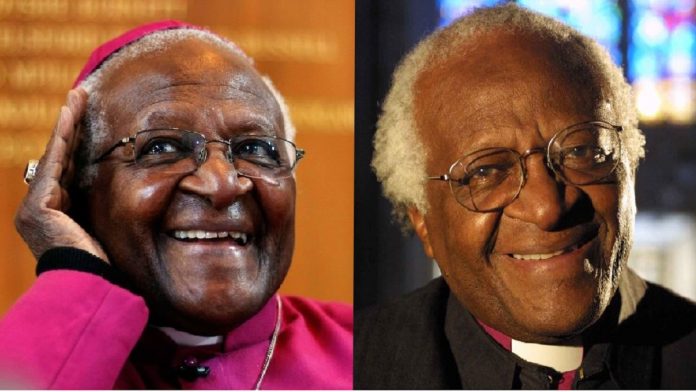Archbishop Desmond Tutu, the Nobel Peace Prize winner who was instrumental in ending apartheid in South Africa, has died at the age of 90.
He was a South African Anglican bishop and theologian who was well recognized for his anti-apartheid and human rights activism. He died on December 26, 2021. From 1985 to 1986, he served as Bishop of Johannesburg, and from 1986 to 1996, he served as Archbishop of Cape Town, both times as the first black African to hold the position. In terms of theology, he aimed to combine ideas from black and African theology.
The churchman’s death, according to President Cyril Ramaphosa, marked “another chapter of mourning in our nation’s farewell to a generation of remarkable South Africans.”
He stated that Archbishop Tutu had helped to leave behind “a liberated South Africa.”
Tutu was one of the most well-known figures in the country, both at home and abroad.
He was one of the driving forces behind the fight to end the regime of racial segregation and discrimination enforced by the white minority government against the black majority in South Africa from 1948 to 1991. He was a contemporary of anti-apartheid icon Nelson Mandela.
Tutu was “an iconic spiritual leader, anti-apartheid fighter, and global human rights campaigner,” according to President Ramaphosa.
He referred to him as “a unrivaled patriot; a principled and pragmatic leader who brought new meaning to the biblical insight that faith without works is dead.
“He was sympathetic and vulnerable in his compassion for those who had suffered oppression, injustice, and violence under apartheid, as well as oppressed and disadvantaged people around the world.”
The Nelson Mandela Foundation was among those who paid tribute to Tutu, with the Nelson Mandela Foundation stating that Tutu’s legacy will live on “Only the depth of his thinking about the creation of liberatory futures for human societies matches his contributions to struggles against injustice, both locally and globally.
Tutu was known lovingly as The Arch because of his purple clerical attire, cheerful demeanor, and almost constant smile.
He was not hesitant to express his feelings in public, as evidenced by his memorable laughter and dancing at the 2010 FIFA World Cup opening ceremony in South Africa.
Despite his popularity, he was not a man universally adored. In the post-apartheid era, he was harsh on the government, believing it was misrepresenting South Africa at times.
He was ordained as a priest in 1960 and served as bishop of Lesotho from 1976 to 1978, as well as assistant bishop of Johannesburg and rector of a Soweto parish. In 1985, he was named Bishop of Johannesburg, and the following year, he was named the first black Archbishop of Cape Town. He consistently used his high-profile position to speak out against the injustice of black people in his homeland.





















